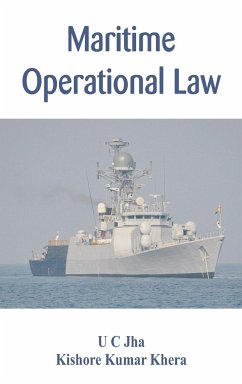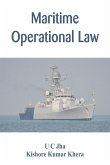The maritime domain plays a crucial role in the globalized economy, and for a country like India with an extensive coastline and a significant Exclusive Economic Zone (EEZ), maritime security and management are of paramount importance. As a maritime nation, India recognizes the significance of maritime security and management. The process to establish theatre commands is a major step towards achieving better integration and coordination among the different branches of the Indian military. This move reflects a shift towards integrated military operations, where all three services (Army, Navy, and Air Force) work synchronously to achieve military objectives. One key aspect of this integration is the need for a shared understanding of operational law. Operational law refers to the legal framework that guides military actions, incorporating international, domestic, and military laws to ensure that military operations are conducted within legal and ethical boundaries. Given the complex and diverse threats that can emerge in the maritime domain, having a common understanding of operational law is crucial for effective decision-making and execution of missions. As India focuses on safeguarding its sea frontiers and addressing emerging asymmetrical and non-conventional threats in the maritime domain, the integration of operational law into military operations becomes even more important. This integration helps in preventing legal complications, ensuring compliance with international norms, protecting the rights of individuals and nations, and upholding the overall credibility of the military's actions. A number of changes have been caused by the major changes in war at sea and the law of the sea. Today, war at sea involves nuclear-powered aircraft carriers, supersonic aircraft, helicopters, drones, and ballistic, cruise, and other guided missiles as well as stealth and computer technology. This Manual on Maritime Operational Law will serve as a guide for all stake holders involved in maritime security. It will help to establish a common vocabulary and shared understanding of operational law between decision makers, force commanders and military legal experts. This shared understanding is vital for ensuring that military actions are conducted legally, ethically, and effectively and result in the responsible use of military power in the maritime domain.
Hinweis: Dieser Artikel kann nur an eine deutsche Lieferadresse ausgeliefert werden.
Hinweis: Dieser Artikel kann nur an eine deutsche Lieferadresse ausgeliefert werden.








